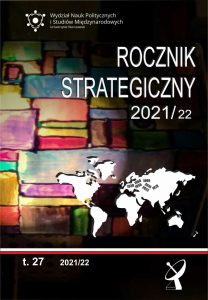Europa Wschodnia i Kaukaz Południowy: nowe fronty destabilizacji
Eastern Europe and South Caucasus: New frontlines of destabilization
Author(s): Andrzej SzeptyckiSubject(s): Regional Geography, Studies in violence and power, Migration Studies, Peace and Conflict Studies, Asylum, Refugees, Migration as Policy-fields, Russian Aggression against Ukraine
Published by: Wydawnictwo Naukowe Scholar Sp. z o.o.
Keywords: Eastern Europe; Southern Caucasus; migration crisis; Russian-Ukrainian war;
Summary/Abstract: The countries of Eastern Europe and South Caucasus meet at least partially the definition of “fragile states”. This situation results from both internal and external factors – the former being ineffectiveness of state institutions, low level of economic development, weak social ties, and the latter is, first of all, the policy of the Russian Federation. Moreover, armed conflicts, either on-going or recently ended, are also an important feature of fragile states. The “fragility” of the countries in the region is of a structural, long-term nature. Nevertheless, the events of 2021 clearly confirm both the specificity of Eastern Europe and South Caucasus and its negative impact on regional and global security. The policy of the Belarusian authorities – largely supported by the Russian Federation – led to the first migration crisis on the eastern border of the EU. Although its scale was significantly smaller than on the southern border in 2015, it confirmed that migration can be used as a leverage tool in foreign policy and that Belarus (and Russia as well) are ready to use it against Western states. Russia’s policy towards Ukraine became a threat not only to that country, but to the entire post-Cold War international order. These events dominated the European and world agenda with regard to Eastern Europe and South Caucasus in 2021. The energy crisis in Moldova, which was a challenge primarily for the Moldovan authorities and the EU, and the situation in Nagorno-Karabakh, which was of major importance for countries directly (Azerbaijan, Armenia) and indirectly (Russia, Turkey) involved in this conflict, played a less important role.
Journal: Rocznik Strategiczny
- Issue Year: 2022
- Issue No: 27
- Page Range: 324-345
- Page Count: 22
- Language: Polish

